Birmingham pub bombings: Suspects won't be named at inquest
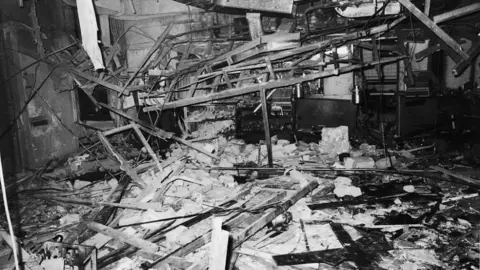 Getty Images
Getty ImagesIRA suspects believed to be behind the Birmingham pub bombings will not be named during new inquests, a coroner has ruled.
Senior coroner Sir Peter Thornton QC said "the perpetrator issue is not within scope" of the hearings.
Twenty-one people died when two bombs were detonated in the city centre in November 1974.
Julie Hambleton, whose elder sister Maxine was killed in the attacks, said she was "devastated" at the ruling.
Relatives had argued the inquests could not take place without naming suspects, while their lawyers said discussing potential perpetrators "is central to the case".
But Sir Peter said: "The identity of perpetrators is not a question that an inquest is charged with answering. Indeed, it may be prohibited from expressing its view on this matter."
Mrs Hambleton said: "I feel it is not conducive to being able to answer all the questions that continue to haunt us - including who planned, prepped, and planted bombs.
"Without the murderers, our loved ones wouldn't be dead and we would not need to go through all this continuing heartache."
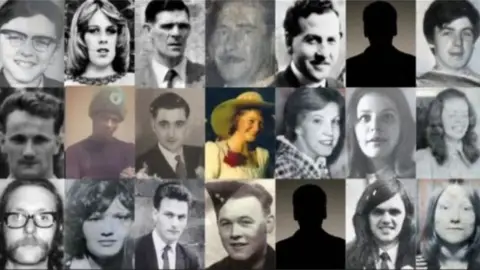
The victims' families have fought for years to have the inquests reopened. Hearings were held days after the bombings but closed without hearing any evidence.
Ten people were killed when a bomb exploded in a duffel bag in the Mulberry Bush pub at 20:17 GMT. A second bomb went off 10 minutes later in the Tavern in the Town, leaving 11 more dead.
A total of 222 were injured in what was, at the time, the worst terrorist atrocity on English soil.
The bombs were widely acknowledged to be the work of the IRA.
No one has been charged with the attacks since six men were freed from prison in 1991.
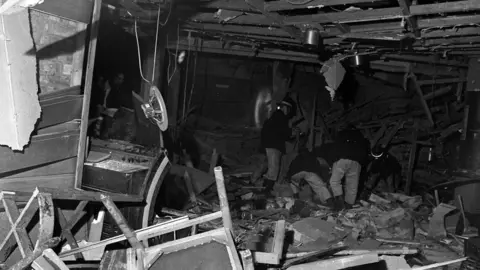 PA
PA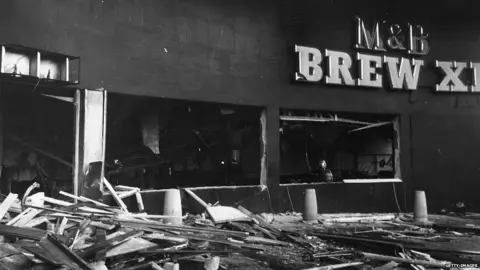 Getty Images
Getty ImagesIn his ruling Sir Peter said the inquests must comply with the law, focus on the four statutory questions of who died, how, when and where they came by their death and be realistic about the availability of relevant evidence 43 years on.
"It is for these reasons that the inquests may not achieve, and could not realistically achieve, all that the families seek," he said.
"That may be disappointing and frustrating. I understand that. But, even where no inquests have been held before and where no person has been brought to justice, it is not in the public interest for these investigations and inquests to pursue unachievable, or indeed unlawful, objectives."
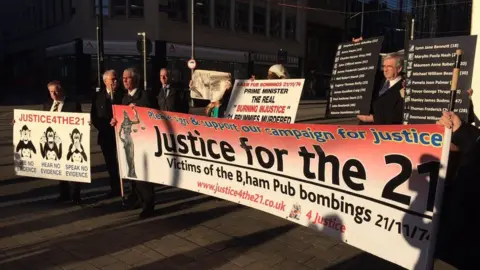
He also ruled out the reactions of the emergency services on the night of the bombings forming any part of the evidence, despite the relatives' asking it be included.
However, Mr Thornton said evidence could be heard on the issue that police may have been tipped off twice about the possibility of a bomb attack in the run up to the blasts.
